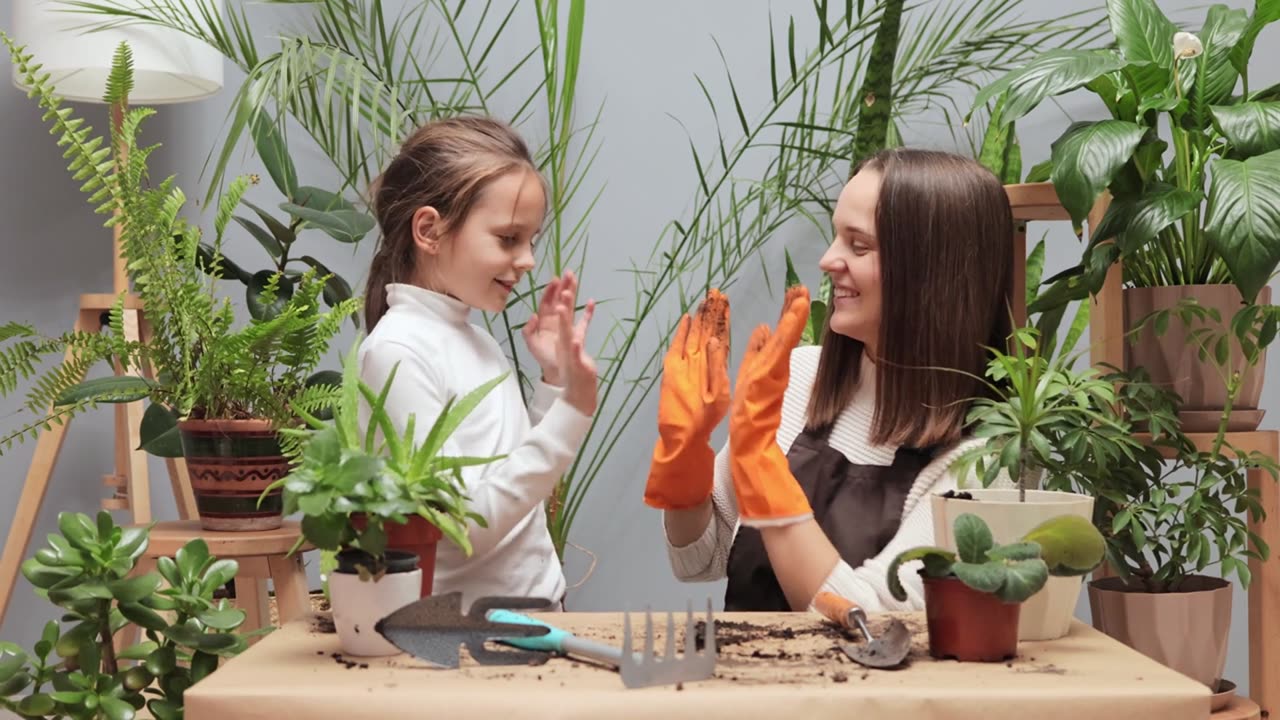Premium Only Content

Teaching your kids to live a sustainable life
Teaching your kids to live a sustainable life is one of the most valuable lessons for their future and the planet. Start with simple concepts that make sustainability engaging and understandable. For instance, involve them in recycling by showing how to separate waste and explain how recycling conserves resources. Make it fun by turning it into a family challenge where everyone sees how much they can recycle in a week.
Educate them about the importance of reducing waste. Encourage using reusable water bottles, lunch boxes, and cloth bags. Explain how small changes in their daily habits make a big impact on the environment. Gardening is another fantastic way to teach sustainability. Show them how to grow fruits, vegetables, or even herbs. Kids love getting their hands dirty, and it’s a great way for them to learn about food sources, plant cycles, and the benefits of homegrown produce.
Introduce the concept of energy conservation early. Teach them to turn off lights when leaving a room and unplug devices when not in use. You can make it a game to see who can be the best energy-saver in the house. Discuss the importance of water conservation by reminding them to turn off the tap while brushing their teeth or taking shorter showers.
Cooking sustainable meals as a family is another engaging activity. Teach them about the importance of eating locally and seasonally, and show them how plant-based meals can be healthy for both the body and the planet. If possible, visit a local farmer’s market so they can learn about sustainable farming practices.
Incorporate lessons about transportation by walking or biking whenever you can. Explain how choosing these methods helps reduce pollution. If biking isn’t feasible, discuss the benefits of public transportation or carpooling.
Books and stories about the environment are also powerful tools. Reading together and discussing how we can take care of the Earth will make a lasting impression. Volunteering for community clean-ups or nature conservation projects can also give them a hands-on understanding of the impact their actions can have.
Lastly, lead by example. Children are more likely to adopt sustainable habits if they see you practicing them daily. Your enthusiasm and commitment will inspire them to care for the planet, helping them grow into environmentally responsible adults.
-
 LIVE
LIVE
The Sufari Hub
32 minutes agoWEDNESDAY GAMING SESH | Kompete & Fortnite & Minecraft - #RumbleGaming
92 watching -
 LIVE
LIVE
The Kevin Trudeau Show
3 hours agoThe 3 Secrets Used By Every Billionaire | Ep. 85
285 watching -
 DVR
DVR
The Dana Show with Dana Loesch
1 hour agoThe Dana Show | 01-22-25
3.97K2 -
 58:20
58:20
The Dan Bongino Show
5 hours agoPresident Trump Did More In A Day Than Others Did In Two Terms (Ep. 2406) - 01/22/2025
649K870 -
 57:21
57:21
Russell Brand
4 hours agoBREAK BREAD EP. 11 - NATHAN FINOCHIO
102K3 -
 2:02:32
2:02:32
Steven Crowder
5 hours agoNon-Stop Winning: How Trump Axed DEI & the Unholy Sermon at the National Cathedral
423K331 -
 59:11
59:11
The Rubin Report
3 hours agoWatch the Moment Charlamagne tha God Realizes Dems Have Been Lying the Whole Time
58.5K52 -
 3:32:27
3:32:27
Right Side Broadcasting Network
1 day agoLIVE REPLAY: RSBN Post-Inauguration Coverage - 1/22/25
132K14 -
 2:04:05
2:04:05
LFA TV
18 hours ago$3 TRILLION IN 3 DAYS! | LIVE FROM AMERICA 1.22.25 11am
46.1K31 -
 50:58
50:58
Grant Stinchfield
2 hours ago $1.41 earnedD.C. Judge Defies Trump! J6ers Still Being Held Hostage Despite Pardon!
11K13